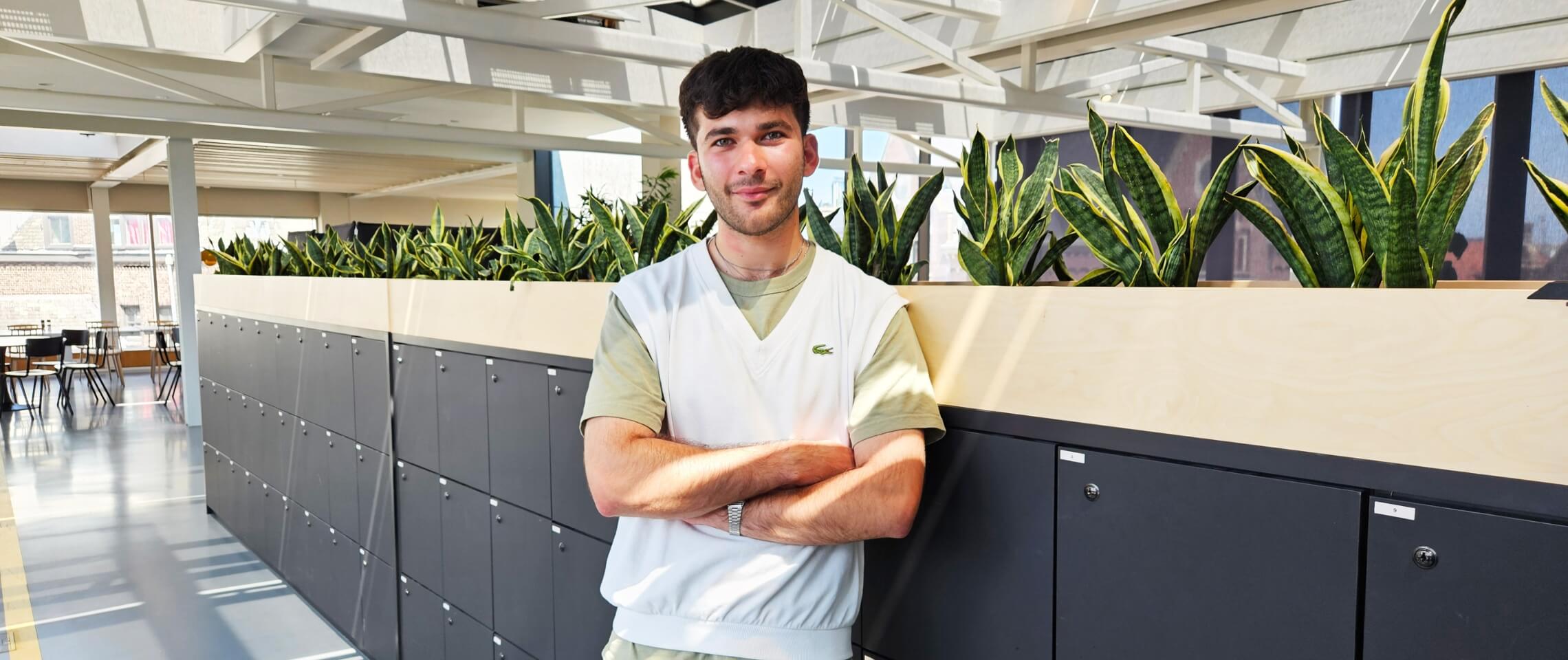When you meet Suhaib Kadah, you’ll see a skilled People Strategy Consultant at Effectory who speaks fluent Dutch, advises customers on employee engagement, and brings sharp insights to every project. What you don’t see right away is the path that brought him here—from Syria, through Europe, and into the Netherlands as a 15-year-old refugee.
“You just never know what someone has experienced”: Suhaib’s story on identity, work, and belonging

What doesn’t show up on a CV
“I came here to feel at home, to integrate, to go to school,” Suhaib says.
He tells his story with calm honesty, never overstating it. But behind the smooth Dutch and the confident demeanor is a reality marked by tough choices: navigating asylum systems, learning a new language, finding stability far from home.
“At the time, I had quite a desire to seek prosperity, to seek perspective, and to find myself in a land where opportunities exist,” he says. “That was something I was lacking back home.”
He arrived in the Netherlands hoping to build a future. And he did. But like many people from refugee backgrounds, Suhaib’s resilience and adaptability don’t always show up in job interviews or LinkedIn bios.
“You just never know what someone has experienced,” he says. “Not everyone has had the chance to benefit from the education system, or just the stability that comes with living in a country like the Netherlands.”
Identity, belonging, and language
Suhaib embraces the label “refugee” not as a limitation, but as part of his identity. “I fled my country because of war, because of conflict, and also because of the lack of perspective in life,” he explains. “I wouldn’t say it’s a label I would ever let go of, because yes, it is the truth. It’s part of who I am.”
One of the most powerful ways he integrated was through language. “I didn’t really have the chance to express myself in other languages except in Dutch,” he says. From school to supermarket jobs to Dutch music, Suhaib immersed himself in the language and eventually studied international business and languages before joining Effectory.
Listening, culture, and psychological safety
At Effectory, Suhaib says he’s felt at home from the start. Not because of grand diversity and inclusion strategies, but because of a culture of consistent, human connection.
“It’s not all about work, deliverables or projects,” he says. “It’s also about: how are you really doing? What did you do in the weekend?”
From employee experience to human experience: How do we bridge the gap? – Effectory
This kind of everyday listening is vital. But Suhaib also emphasizes the importance of structure.
“Doing a DEI scan, for example, shows employees that the company is taking it seriously.”
As a consultant, Suhaib helps customers understand that employee surveys are not the end goal. They’re a starting point. These tools give organizations the insight they need to improve, not just the illusion of inclusion.
“Doing such a survey is not going to solve all your problems immediately,” he explains. “It’s also about what action you take […] it’s a two-way street.”
Internally, Suhaib sees that Effectory walks the talk. “Here at Effectory, I believe that we definitely practice what we preach,” he says. “We regularly hold surveys on a lot of levels, not just the traditional yearly big survey […] For example, we have a DEI scan, and a psychosocial risk assessment scan just to see how everyone is doing in terms of workload, mentally.”
He’s seen the impact firsthand. “Performance being rewarded was something that had scored quite low,” he says. “Already from the past survey, I saw that that score increased by a lot because Effectory took some serious measures.”
Measure employee inclusion and increase organizational performance – Effectory
Advice to employers
Suhaib’s advice for hiring people from refugee backgrounds is simple: challenge your assumptions.
“Treat them as you would any other applicant,” he says. “And consider the situation someone comes from. Their story, their experience matters.”
His own journey is proof that when given the opportunity, people from different starting points can thrive. Suhaib didn’t tick all the requirements when he applied to Effectory, but he believed in his abilities, and was given the chance to prove himself.
“Sometimes you just have to believe in yourself,” he says. “And employers have to be willing to look beyond the checklist.”
Listening better, building stronger organizations
Suhaib’s experience shows how people can contribute in powerful ways—no matter where they start—when they’re given the chance to be heard and included. At Effectory, we believe every employee should have a voice. Listening helps us understand what people need at work, and how we can create an environment where everyone has a fair shot at doing well.